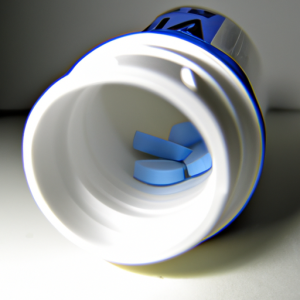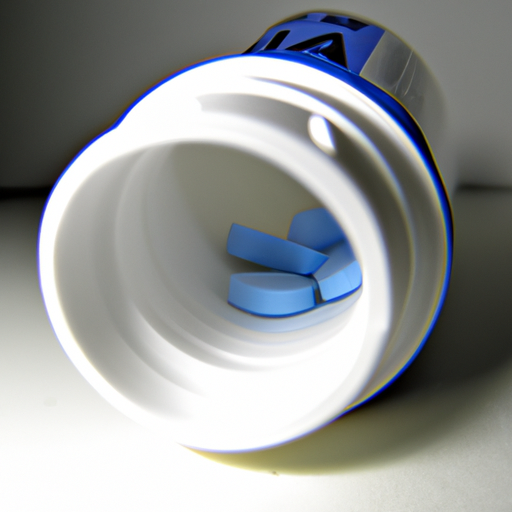Introduction
Hi there! I’m here to give you the lowdown on Acne Vulgaris. You know – that pesky problem that seems like it’s never going away? Well, don’t worry – I’m here to help. In this post, I’ll be talking about what Acne Vulgaris is, what causes it, and the common treatments out there. Plus, I’ll let you in on the best cure for Acne Vulgaris, so stick around and keep reading!
So, first off, let’s define Acne Vulgaris: it’s a skin condition caused by clogged pores. This usually manifests as whiteheads, blackheads, cysts, and pimples. It can occur anywhere on the body but most commonly shows up on the face, chest, back, and shoulders.
What Causes Acne Vulgaris?
It’s the age-old question: why do some people suffer from acne and others don’t? Unfortunately, there is no one cause that can be pinpointed as the source of all acne problems. In fact, there are a variety of factors that may contribute to an individual’s case of acne vulgaris.
Most commonly it’s thought that genetics play a large role in the development of acne – if your parents had it, you have a greater chance at inheriting those pesky things called pimples. Other possible causes include hormones, stress, diet, hygiene, medications, and most importantly, bacteria.
Hormonal changes are also known to contribute to acne, particularly due to fluctuations during puberty, menstrual cycles and pregnancy. In addition, stress can bring on flare-ups, so if someone is feeling particularly anxious about something, their skin may reflect it!

Diet is another contributor to the formation of acne. Foods that are high in simple carbohydrates, such as white bread and sugary soda, can trigger breakouts since they spike glucose levels and create inflammation in the body. On the other hand, a diet rich in antioxidants and fatty acids, found in seafood and nuts, can help reduce the redness associated with acne.
Finally, bacteria plays a major role in the creation of acne. Bacteria such as P. acnes thrive in the sebaceous glands of the skin, where they feed on sebum (the skin’s natural oil). These bacteria can become trapped in the pores, which leads to inflammation and swelling – or what we know simply as a zit.
So, as you can see, there’s not just one thing responsible for those nasty breakouts. However, understanding the various causes of acne can go a long way in helping to prevent and treat it.
Common Treatments for Acne Vulgaris
When it comes to treating acne vulgaris, not all treatments are created equal. But don’t worry, I’ve got ya covered. With just the right mix of medications and lifestyle changes, you can banish those zits and blemishes for good.
First up, topical creams and ointments that contain antibiotics, anti-inflammatory drugs (e.g. benzoyl peroxide), retinoids, and combination medicines are proven to be effective in reducing inflammation. These work best when they’re applied directly to the affected areas so they can reach the cells where acne forms.
For a stronger punch, your doc may also prescribe systemic medicines like oral antibiotics, hormone therapy, and isotretinoin. Depending on the severity of your acne, your doctor will tailor a treatment plan specifically for you.
If prescription drugs aren’t your thing, there are also some natural remedies that could help treat and prevent breakouts. Tea tree oil, for instance, is an essential oil known for its antibacterial and antifungal properties. Fruits with astringent and antioxidant properties – like lemons, oranges, and apples – are also great for controlling inflammation and clearing pores.
Finally, let’s not forget about the importance of a healthy lifestyle. Eating fried or processed foods can increase sebum production and lead to more breakouts, so make sure to add plenty of nutrient-rich fruit, veggies, and whole grains to your diet. And don’t forget to keep skin clean and moisturized by washing it twice daily and exfoliating regularly!
Pros and Cons of Common Treatments for Acne Vulgaris
When it comes to treating acne vulgaris, there’s a lot of options out there. From over-the-counter topical creams and gels, to prescription medications, to lasers, each comes with its own unique set of pros and cons. It’s important to do your research, weigh the risks and benefits, and talk to your doctor about which treatment might be right for you.
For instance, OTC treatments like benzoyl peroxide can kill bacteria on the skin and help clear up milder cases of acne – but they can also cause skin irritation. Prescription antibiotics like tetracycline are great if you’re dealing with more severe outbreaks, as they can both reverse inflammation and prevent new breakouts – just keep in mind they may have some potential side effects. Finally, laser and light treatments are usually reserved for particularly persistent cases. While they can be quite effective, they’re also expensive and time consuming.
At the end of the day, it all boils down to figuring out what works best for you. So take your time, ask questions, and don’t be afraid to experiment a bit to find the perfect solution.
The Best Cure for Acne Vulgaris: Unconventional Advice
So, you’ve got acne. And, let me tell you, it ain’t gonna go away overnight. But the good news is that there are treatments out there that can help. It just takes a little bit of uncommon knowledge and know-how to make them work.
First off, you should definitely stay on top of your hygiene habits. Washing your face regularly, avoiding picking at pimples, and steering clear of over-drying chemicals can all help prevent flare-ups.
Next, it’s time to get proactive. Replacing dairy with plant-based alternatives in your diet, and adding probiotics to your daily regimen can do wonders for restoring balance to your skin. Also – and this one might sound crazy– consider ditching cigarettes and alcohol, as they can really wreak havoc on the skin.
If these tactics don’t provide enough relief, then you may want to look into more serious approaches. A dermatologist can recommend topical creams and medications to target the specific causes of your acne. Laser therapy, peels, chemical exfoliation and light-based treatments are also becoming increasingly popular – but only if you’re willing to place your trust in your doctor.
Ultimately, everyone’s skin is different, and as such, there’s no one-size-fits-all approach to treating acne. That said, if you take the time to assess your symptoms, adjust your lifestyle, and explore the full range of options available, then you’ll be well on your way to finding the best cure for your particular situation.
Conclusion
Acne Vulgaris is a skin condition that can have a major impact on mental health if not properly cared for. After reviewing the causes and available treatments, it’s clear that while there are many ways to treat acne, there is no one-size-fits-all solution. What works for one person may not work for another, so it’s important to find an approach that speaks to your individual needs.
If you or someone you know struggles with Acne Vulgaris, the best approach is to do some research and consult with a doctor or dermatologist about which course of treatment is most likely to give you the best results. No matter the approach you take, it’s important to stay consistent with whatever regimen you choose and be patient. With the right methods, you can clear up your skin in no time!
FAQs on Acne Treatment
What can acne vulgaris be best treated with?
My advice for treating acne vulgaris is to get to the root of the problem. One way to do this is by changing your diet. Cut down on processed foods, sugars, and dairy and increase your intake of fruits and vegetables. Eating a balanced diet that is high in fiber and healthy fats can help to reduce outbreaks of acne. Additionally, taking probiotic supplements can also help to keep your skin clear and free of breakouts.
If diet and lifestyle changes are not enough to clear up your acne, then it is time to consider using topical or oral medications. Topical creams, gels and lotions that contain benzoyl peroxide or salicylic acid can help to reduce inflammation and kill the bacteria that can cause acne. For more severe cases, a doctor may prescribe oral medications to help reduce the severity of acne and prevent future outbreaks.
Finally, it is important to remember that acne vulgaris is a medical condition and if you are experiencing persistent and severe issues, it is important to consult with a dermatologist to create a personalized treatment plan. In some cases, it might be necessary to combine lifestyle changes, topical creams, and oral medications to get optimal results.
Will acne vulgaris go away?
I’m no derm or doctor, but I have had success treating my acne vulgaris. The best cure for acne vulgaris, in my opinion, is to find the root cause of it. Genetics, hormones, stress, poor diet—even certain medications—all have the potential to trigger or worsen the condition.
To start, take a look at what you’re eating and drinking. Opt for fresh, nutrient-rich foods and drink plenty of water. Avoid processed and high-sugar foods and sugary drinks, which can trigger an excess of oil production.
Then, make sure you’re keeping your skin clean. Wash with a mild, pH-balanced cleanser, twice daily, and consider using an oil-free moisturizer. If you must wear makeup, look for oil-free formulas.
Finally, speaking from experience, I’d suggest giving topical treatments a try. Benzoyl peroxide and salicylic acid are both effective acne-fighting ingredients, and can be found in over-the-counter creams and ointments, as well as prescription products.
Will acne vulgaris go away? Yes, it can—given the right treatment. And with the help of a dermatologist, you can find the product or combination of products that will help you find relief from this frustrating condition. Good luck!
What is the main cause of acne vulgaris?
My motto is that prevention is better than cure, and when it comes to acne vulgaris, it is no different. While topical treatments, antibiotics, and other therapies can reduce symptoms, the best way to treat acne is to stop it before it starts. The main cause of acne vulgaris is the overproduction of oil, or sebum, by the oil glands. This excess oil can cause pores to become blocked, which leads to an increase in acne-causing bacteria. Additionally, hormones can play a role in the development of acne.
Therefore, in order to prevent and treat acne vulgaris, it is important to adopt a good skin care routine. Cleansing the face twice a day with a gentle cleanser helps remove dirt and bacteria to prevent clogged pores. Secondly, it is important to use an oil-free moisturizer that won’t block the pores. Lastly, an exfoliating scrub can help remove dead skin cells, reducing the risk of bacterial growth.
It is also important to follow a healthy diet and lifestyle. Eating a well-balanced diet that includes plenty of fruits and vegetables can help improve skin health. Regular exercise can help reduce stress and boost overall health, which can also reduce acne breakouts. Finally, avoiding excessive sun exposure can help minimize acne and skin discoloration.
